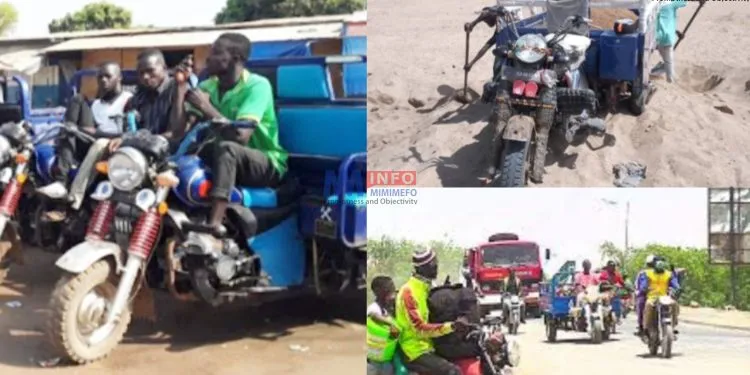In Maroua, the capital of Cameroon’s Far North Region, three-wheeled motorcycles—commonly referred to as tricycles—have become a staple of urban transport. These vehicles, widely used to carry sand, goods, and passengers, are now an essential part of the city’s logistics.
However, their growing presence comes with serious concerns, as many of these tricycles are driven by minors with little to no training or official oversight.
Untrained and Underage Drivers at the Wheel
Most tricycle drivers in Maroua are under the age of 20, often lacking the experience or judgment required to navigate busy city streets. Local sources report that many operate while under the influence of drugs, or simply drive recklessly due to inexperience.
“They race through the streets at dangerous speeds, barely avoiding pedestrians and other vehicles,” a local resident noted. This conduct is not without consequence. Reports indicate that of the approximately 20 traffic accidents recorded weekly in Maroua, nearly 12 involve tricycles.
A Regulatory Vacuum Fuels the Crisis
A lack of enforcement exacerbates the situation. Many of the tricycles operate without driving licences, insurance, or any form of official identification.
“There seems to be no control anymore. These young people drive like madmen, and nobody stops them,” said Issa, a merchant at Maroua’s central market.
This regulatory void raises alarm among citizens who feel increasingly unsafe on the roads.
Economic Survival vs. Public Safety
For many of these young drivers, tricycle operation is more than a job—it’s a lifeline. Unemployed and without other viable options, they turn to this work for quick income.
Yet the human and societal costs are mounting. Serious injuries, fatalities, and material damage have become frequent, leaving families and communities to bear the consequences.
Calls for Government Intervention Grow Louder
Residents are now demanding immediate action from local authorities. Many view the silence from officials as a form of tacit approval.
Without concrete regulatory steps, the tricycle phenomenon risks further destabilizing urban mobility and endangering public health in Maroua.
“We need action before things get worse,” one concerned citizen urged.
As tricycles continue to fill the transportation gap in Maroua, their unchecked use poses an increasing threat to public safety. The city urgently needs regulation, training, and enforcement to balance utility with responsibility.



